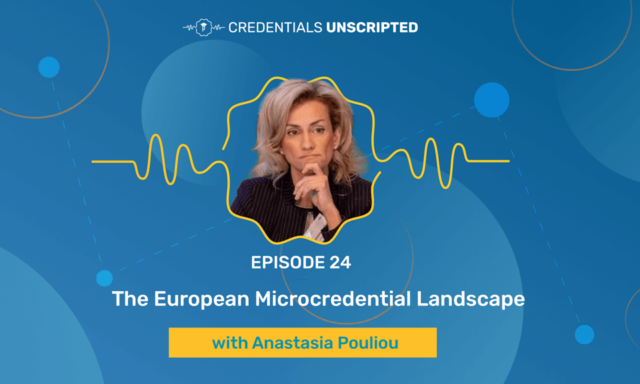
International
The European Microcredential Landscape
We use cookies to help you navigate efficiently and perform certain functions. You will find detailed information about all cookies under each consent category below.
The cookies that are categorized as "Necessary" are stored on your browser as they are essential for enabling the basic functionalities of the site. ...
Necessary cookies are required to enable the basic features of this site, such as providing secure log-in or adjusting your consent preferences. These cookies do not store any personally identifiable data.
Functional cookies help perform certain functionalities like sharing the content of the website on social media platforms, collecting feedback, and other third-party features.
Analytical cookies are used to understand how visitors interact with the website. These cookies help provide information on metrics such as the number of visitors, bounce rate, traffic source, etc.
Performance cookies are used to understand and analyze the key performance indexes of the website which helps in delivering a better user experience for the visitors.
Advertisement cookies are used to provide visitors with customized advertisements based on the pages you visited previously and to analyze the effectiveness of the ad campaigns.
Other cookies are those that are being identified and have not been classified into any category as yet.

We are in the midst of an education revolution and no one knows this better than Charles Tsai. Journalist, writer, speaker and social entrepreneur, Tsai has a proven track record helping youth design and implement their own solutions for global change. His passion for revolutionizing education doesn’t stop with learning; he’s also committed to influencing the way institutions credential, to document the learning in a way that translates to the workforce.
We’re all familiar with traditional academic credentials like the transcript and the diploma, but how acquainted are you with micro-credentials? Often referred to as badges, micro-credentials can provide learners with the recognition of work completion that may include a non-credit course, professional learning or even a seminar.
According to Tsai, micro-credentials can function to map learning, motivate learning and recognize learning. While not fully adopted by U.S. higher education institutions today, micro-credentialing is being discussed at many institutions, for example with Elon University. Elon currently offers student’s an Elon Experiences Co-Curricular transcript that demonstrates participation in leadership development, service learning, internships, study abroad and undergraduate research programs.
“We are entering an era where universities have to work with other stakeholders (in specific industries) to determine what meaningful credentials will look like,” said Tsai.
Did you miss the session with Tsai and want to learn more about his perspective on micro-credentials? Don’t worry; it’s available now, on-demand!
